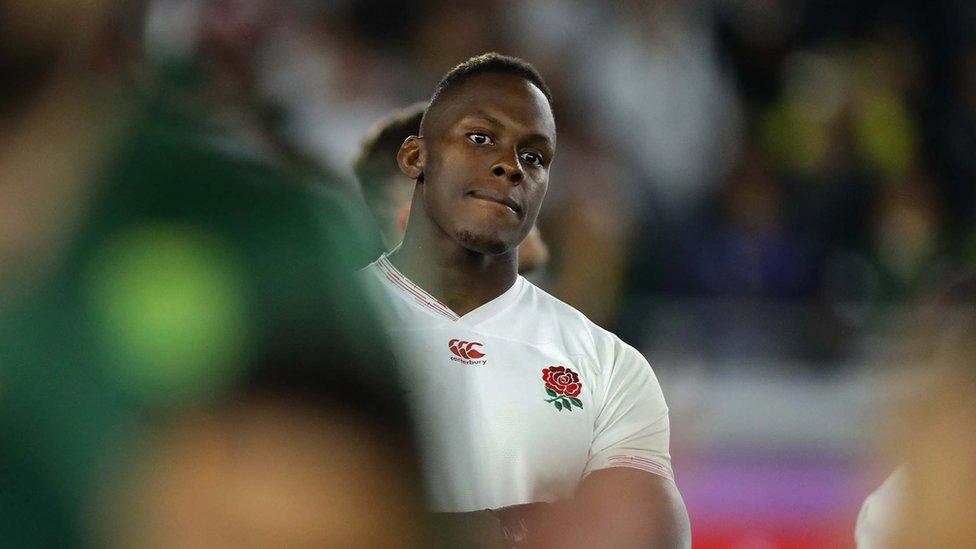Politicians must act on anti-racism protests - Maro Itoje
- Published

Anti-racism protests following the death of George Floyd need to lead to lasting change, England Rugby player Maro Itoje has urged.
The 25-year-old, who was born in London to Nigerian parents, there was a risk "everything goes back to normal" after a "buzz for couple of weeks".
He told the BBC's Nick Robinson politicians should be forced to focus on long-term solutions.
"It's the groundwork for change to come about," he added.
He said he had "very briefly" attended a recent Black Lives Matter protest in London to "support the movement".
"I really wanted to just feel the atmosphere and see what it was like," he told BBC Radio 4's Political Thinking with Nick Robinson podcast.
Demonstrations have been taking place across the world following the death of George Floyd in the United States last month.
The African American man died in Minneapolis as a white police officer held a knee on his neck for nearly nine minutes. Four police officers involved have been sacked and charged over his death.
Itoje said he felt the protests were "very important" in drawing attention to issues such as racism and climate change, as "they make people listen who wouldn't normally".
'Bring suggestions'
But he added: "The risk is, and it's the same with every type of movement, is that you create a new story and a buzz for couple of weeks or a couple of months and then it dies down and everything goes back to normal.
"That's the danger. We need to bring suggestions of what can be done, what can change and how can we try and solve this problem and we need to force politicians to have this desire as well."
He also said he wanted to play a role in educating people about racial bias.
"Racial bias affects everyone - so black people have racial bias, white people have racial bias.
"But what happens is, when white people have this racial bias and they then get into positions of power - they become teachers, become university professors, politicians, broadcasters - it affects everybody.
"Once that happens, they then act unconsciously - some consciously and unconsciously - on this racial bias, and produce a system which is not equal opportunity for all."